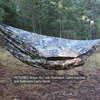Council Relations
Discuss issues relating to Scout Councils, districts and working with professionals
678 topics in this forum
-
- 12 replies
- 3.4k views
-
- 36 replies
- 10.9k views
-
- 17 replies
- 4.4k views
-
- 28 replies
- 8.7k views
-
- 7 replies
- 3.6k views
-
- 25 replies
- 6.3k views
-
- 21 replies
- 7.6k views
-
- 16 replies
- 4.2k views
-
- 10 replies
- 2.6k views
-
- 16 replies
- 3.7k views
-
- 18 replies
- 4k views
-
- 6 replies
- 2.9k views
-
- 12 replies
- 2.9k views
-
- 6 replies
- 4.3k views
-
- 13 replies
- 4.3k views







